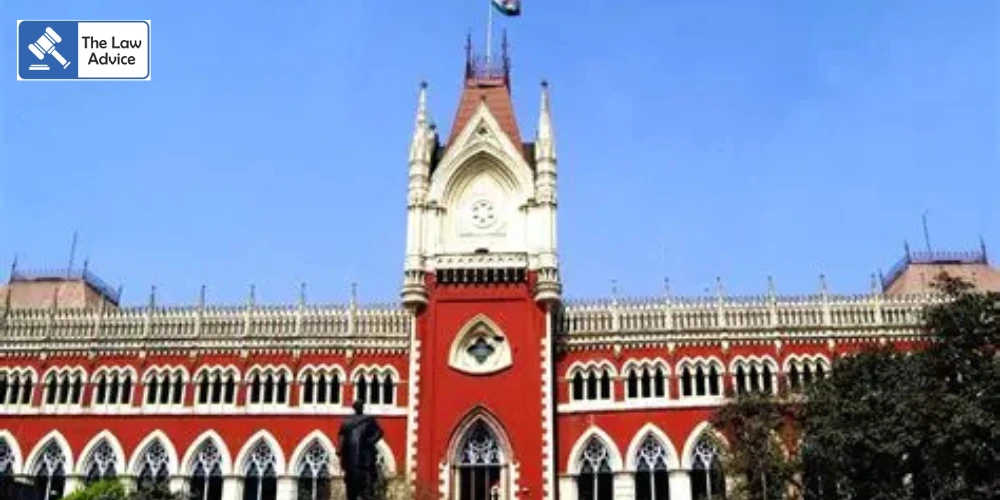The Calcutta High Court has clarified the scope and objective of Section 94 of the Bharatiya Nagarik Suraksha Sanhita, 2023 (BNSS), holding that the provision operates as a supplementary tool for ensuring the production of relevant evidence during investigation, inquiry, trial, or other proceedings so as to prevent failure of justice.
Justice Tirthankar Ghosh, while dealing with a writ petition challenging a notice issued under Section 94 BNSS, observed:
“The ultimate object behind Section 94 of BNSS is to confer power in the hands of the Court or, in case of a pending investigation, inquiry, trial or other proceedings, to produce documents or other things which the Court or the police authorities deem relevant and cogent for conducting the proceedings. It is a supplementary power available for unearthing the truth in course of investigation/inquiry/trial or other proceedings, thereby preventing failure of justice.”
The petitioners, Swami Vivekananda University and its Registrar, challenged a notice dated 25.07.2025 issued by the Investigating Officer under Section 94 BNSS, directing production of records of all students who had received government scholarships from the institution between 2020 and 2025.
The matter arises from a complaint alleging large-scale examination malpractice. It was alleged that the Centre-in-Charge for Exams at the University, along with observers and staff, had engaged in organized leakage of question papers during May 2025 examinations and other semester exams under the West Bengal State Council of Technical and Vocational Education and Skill Development.
Since the officials concerned were public servants discharging statutory functions, their actions were alleged to constitute criminal misconduct under the Prevention of Corruption Act, 1988, apart from offences under the Bharatiya Nyaya Sanhita (BNS), 2023.
Senior Counsel appearing for the petitioners submitted that:
• The complaint treated as FIR alleged exam malpractice, conspiracy, and corruption, but the impugned notice sought records wholly unrelated to those allegations.
• A comparative reading of Section 94 BNSS, 2023 with Section 91 of the Code of Criminal Procedure, 1973 (CrPC) shows that such notices can be issued only where production of documents is “necessary or desirable” for investigation.
• There was no nexus or link between the alleged offence at Regent Institute of Science and Technology (where malpractice occurred) and Swami Vivekananda University.
• The Investigating Agency cannot misuse Section 94 BNSS to conduct a roving or fishing inquiry by demanding voluminous records unrelated to the FIR.
Accordingly, they sought quashing of the notice.
On behalf of the State, it was argued that:
• The investigation followed a specific complaint by one Gopi Bondhu Ganguly, after which Mohanpur Police Station conducted a preliminary inquiry and registered a case on finding substantial material.
• Investigation revealed that a scholarship scam was being run in parallel to the examination malpractice, wherein undeserving students were granted government scholarships.
• Both Swami Vivekananda University and Regent Institute of Science and Technology are operated by the same Trustee, and hence, the probe into scholarship records was directly connected to the offences alleged.
• The Investigating Officer’s request for documents was aimed at ascertaining whether any financial benefit was fraudulently derived in the name of scholarships.
• Section 94 BNSS empowers the Investigating Authority to seek such records, and the notice was fully within statutory bounds.
The Court carefully examined the scope and intent of Section 94 BNSS, noting that the power to demand production of documents is not unfettered but is justified when the documents sought are relevant to ongoing investigation.
Justice Ghosh noted that the case diary materials prima facie indicated a link between the examination malpractice and scholarship disbursal, thereby satisfying the necessity and desirability test under Section 94 BNSS.
The Court further observed:
• To insist on further reasoning regarding the relevance of documents would amount to judicial interference with the investigation process, which is beyond the scope of writ jurisdiction under Article 226 of the Constitution of India.
• Section 94 BNSS serves as a supplementary provision, enabling investigators and courts to call for evidence not already on record, thereby ensuring completeness of inquiry.
Holding that the notice was validly issued and justified in the facts of the case, the High Court dismissed the writ petition.
Thus, the plea of Swami Vivekananda University & Registrar challenging the notice under Section 94 BNSS was rejected, reinforcing the principle that investigating authorities may legitimately seek relevant records to prevent miscarriage of justice.
Case: Swami Vivekananda University & Anr. vs. The State of West Bengal & Ors. | Case No: W.P.A. 17617 of 2025
